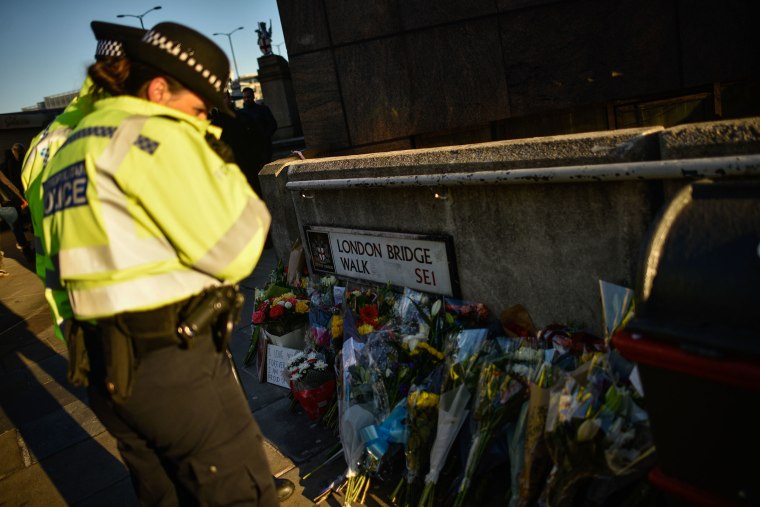LONDON — The deadly London Bridge stabbing attack last week has shined a light on what some experts say is a criminal justice system in crisis as it struggles to cope with overcrowded prisons and overstretched rehabilitation programs after years of huge funding cuts.
There was public outrage after it emerged that Friday's attacker, Usman Khan, had been released halfway through his 16-year sentence for his part in an al Qaeda-inspired plot to blow up the London Stock Exchange and other sites. The 28-year-old was shot dead at the scene while wearing a fake suicide vest.
His release 12 months ago from HMP Whitemoor, a high-security jail, was automatic and came without any Parole Board oversight due to a quirk of the English sentencing system. Khan was able to serve the rest of his sentence "on licence" while living in the community, which means regular probation appointments and the wearing of an electronic tracking tag.
Nick Hardwick, the former chair of the Parole Board for England and Wales, said he believed budgets cuts as part of the ruling Conservative Party's so-called austerity agenda were partly to blame for Khan being released.
"I don't know what happened in this case but I do know for a fact that the cuts and reorganization of the prison and probation service have made them much less able to do their jobs and keep the rest of us safe," he said Monday. "We've neglected the criminal justice system and now the chickens are coming home to roost."

Billions of pounds have been stripped from British public finances over the last 10 years, during which the ruling Conservative Party has sought to reduce public debt by shrinking state-run services. The Institute of Fiscal Studies, a London think tank, has estimated that the Ministry of Justice, which runs courts and prisons, will have faced a 40 percent budget cut over the decade to 2020.
The result, according to some experts, is a prison system with high levels of violence, drug use and re-offending that cost the taxpayer at least 15 billion pounds ($19 billion) a year, according to the National Audit Office.
The House of Commons Justice Committee said in a major report in April that the government's plan for prisons was "inefficient, ineffective, and unsustainable in the medium or long-term."
Official inspection reports have found it is common for three prisoners to share a two-person cell with an open toilet, with long-term repairs not done. In some cases, inmates spend as little as one hour per day outside their cells, in conditions that haven't changed much since the Victorian era.
All this means locking people up for longer might not solve anything, according to John Podmore, a long-standing expert in criminal justice and previously governor of several British prisons.
"The prison bit is relatively easy," he told NBC News, adding that HMP Whitemoor, where Khan spent eight years, was "probably the most secure prison in western Europe."
"But in a sense, it’s a relatively safe environment for someone like him who wants to hide away his ideology," Podmore said.
He called the release "highly inappropriate" and added that with someone scheduled for automatic release, more could have been done to successfully reintegrate him into public life.
"He needs to be sent to an environment that tests his relationships, his attitudes, that gets him to interact with a range of people in a range of normal circumstances. And that didn’t happen," he said.
Jonathan Robinson, an ex-prisoner and an independent prison reform campaigner, said that the problem was so widespread it goes beyond one single event, however tragic.
"We still have the worst prison system in the European Union, whether you look at the amount of re-offending or the cost of re-offending which has now gone up," he said.
Andrew Neilson, campaigns director at the Howard League for Penal Reform, said: "Prisons in England and Wales are overcrowded and face record levels of violence and human misery. The probation service also faces well-documented problems.
"How should we move forward? The answer does not lie in writing people off."
With bitter irony, Friday's attack began at a conference organized by Learning Together, a group that works toward rehabilitating prisoners — Khan took part in the educational scheme, which pairs inmates with people in higher education. Jack Merritt, 25, and Saskia Jones, 23, who both died in the attack, worked as coordinator and volunteer respectively.
The Ministry of Justice declined to comment.
